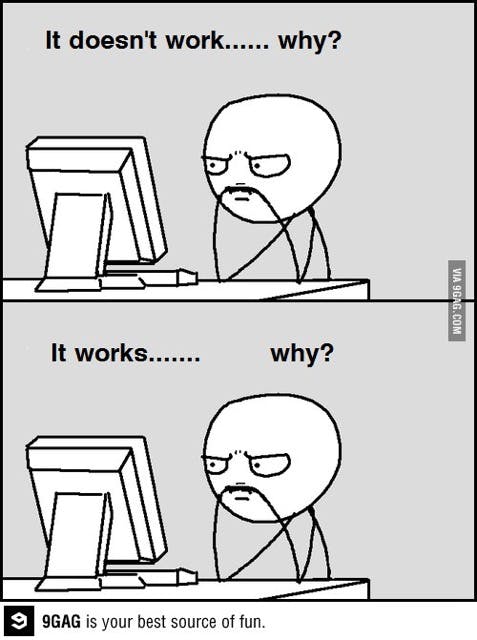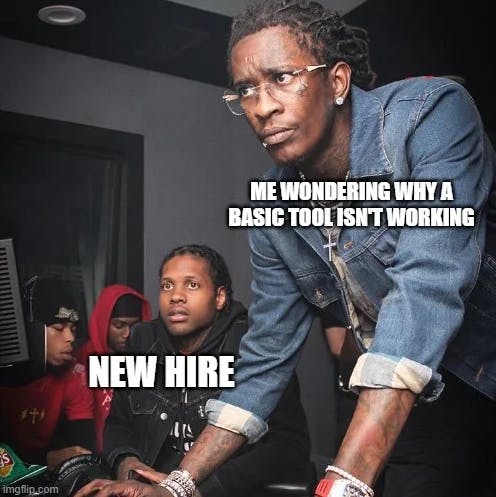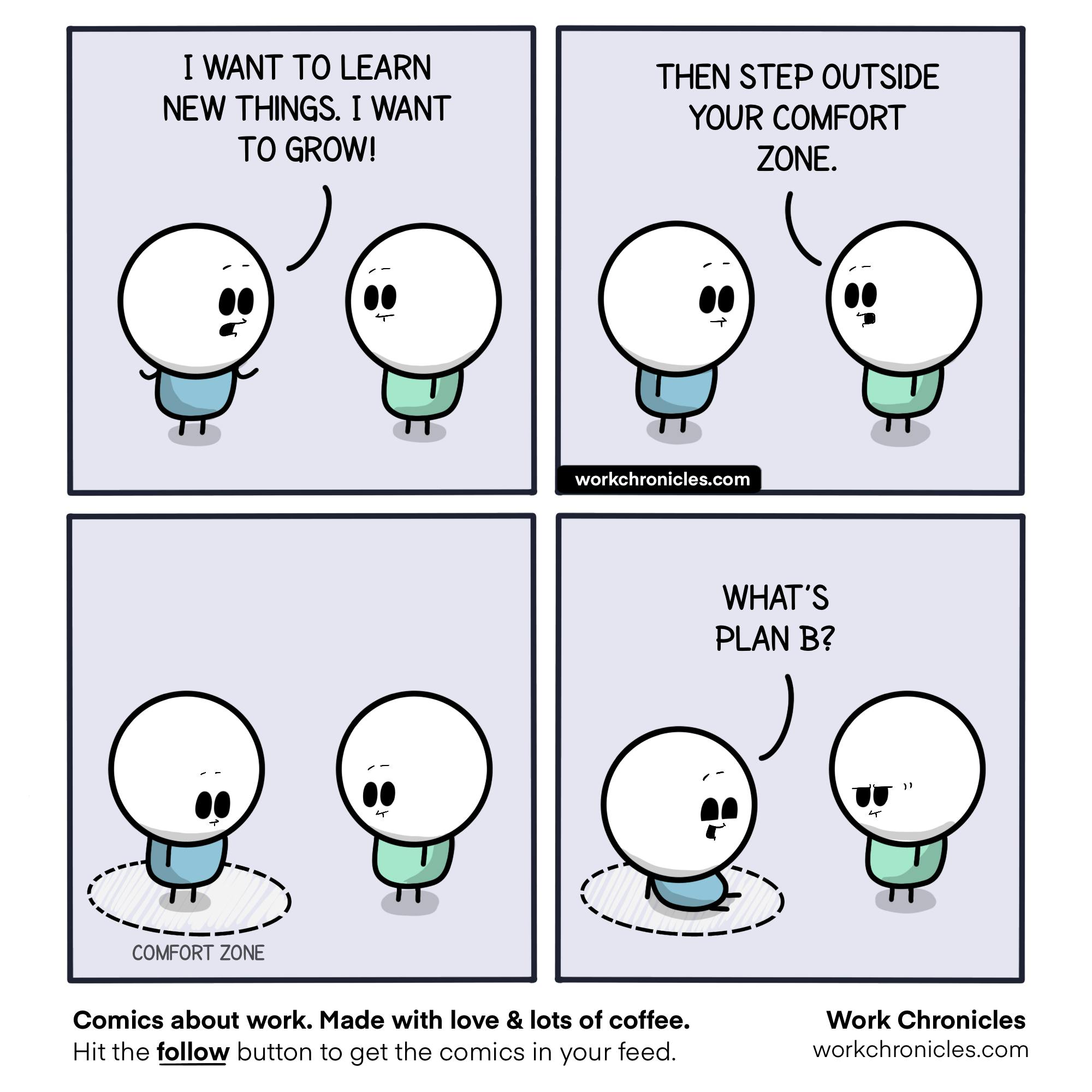As a junior software developer, it's important to approach your role with a growth mindset, eager to learn and improve your skills. With the right mindset and approach, you can maximize your learning opportunities and become a well-rounded developer. In this blog, we'll explore some of the key habits and practices that can help you to develop as a junior developer. From making mistakes and asking for help, to seeking out challenges and understanding the bigger picture, I'll provide practical tips and advice to help you along the way.
Embrace Mistakes

As a junior software developer, you have the advantage of being able to make mistakes without significant consequences. In this industry, making mistakes is a natural part of the learning process, and it's an opportunity for you to grow and develop your skills. With the help of compilers, debuggers, and testing frameworks, you can experiment with different approaches, find solutions to problems, and receive valuable feedback in the form of error messages and warnings. This trial and error process is crucial for gaining hands-on experience and building your knowledge of the technologies you're working with.
So don't be afraid to take risks, try new things, and embrace the opportunity to make mistakes. Your seniors are there to make sure that your mistakes do not cause any harm to the system, and they can provide guidance and support as you continue to grow and develop your skills. The key is to be open to learning, embrace the challenges that come your way, and stay hungry for knowledge and experience. Remember, the worst that can happen is that you'll make a mistake, but you'll learn from it and become a better developer in the end.
Learn From Your Colleagues

As I mentioned earlier, having a supportive team of seniors is crucial for your growth as a junior software developer. They bring with them vast experience and knowledge that can be invaluable in guiding and supporting you in your journey. When seeking assistance from your colleagues, it's crucial to communicate effectively to get the best results. Before asking for help, take a moment to explain your objectives and outline the steps you've taken so far to solve the problem. This provides context and allows them to better understand the issue. Additionally, sharing what you have tried and where you hit a roadblock can give them a clear picture of what needs to be done. By taking the initiative to solve the problem on your own and approaching your seniors in a well-organized manner, you not only receive effective help but also build positive relationships with them.
Code reviews can also be a valuable learning opportunity for you as a junior software developer. Your goal should be to write code that meets the same standards as your senior developers. During code reviews, your colleagues can provide feedback on your work, highlight best practices, suggest optimizations, and guide you on how to avoid common mistakes. This is a chance for you to ask questions, learn new techniques, and gain a deeper understanding of the codebase. However, to fully benefit from code reviews, it's essential to maintain a humble and open-minded attitude. Keep in mind that your knowledge and experience in the vast field of software engineering may be limited. Be open to feedback and suggestions from others, even if they challenge your current beliefs or understanding. This approach will not only help you grow as a developer but also foster a positive work environment where everyone is encouraged to learn and contribute.
In addition to having your code reviewed, it's also important to take an active role in reviewing the code of others. This will give you a chance to see how experienced developers approach different problems and write code. Reading and reviewing other people's code can also help you identify patterns and techniques that you may not have considered before. This process can be just as educational as having your own code reviewed. You can learn from the design choices that others have made, and how they've solved problems that you may encounter in the future. Additionally, by reviewing others' code, you're contributing to the development of the codebase and helping to ensure that it's maintainable and of high quality. So, make it a habit to review the code of others, and don't be afraid to ask questions and provide constructive feedback.
Embrace New Challenges

Working a traditional 9-5 job doesn't necessarily mean that you'll have 8 hours of deliberate practice every day. In fact, most of what you do at work may involve tasks that you already know how to do, which doesn't equate to learning. However, you can control your learning journey by seeking out job opportunities and projects that challenge you. As Steve Jobs once said, "Stay hungry, stay foolish.". Pursuing these challenges will shape your future career, and the knowledge and skills you gain will pay off in the long run. So stay hungry for new challenges and stay foolish enough to pursue them, even if they don't seem immediately lucrative. Your growth and success as a developer depend on it.
The ever-evolving nature of software development requires the mentality to always learn, not just as a junior developer but throughout your entire career. Whether you become a senior developer or a manager, the technology landscape will continue to change, and you'll need to adapt and learn new skills to stay relevant. So cultivate a growth mindset and embrace the challenge of learning, as it will serve you well in the long run.
See The Bigger Picture

As a junior developer, it's easy to get bogged down in the details of a specific task or project and lose sight of the bigger picture. However, understanding the connection between your work and the larger goals of the organization is crucial for success as a developer. By understanding the big picture, you can make more informed decisions, prioritize your work effectively, and avoid missing critical dependencies or deadlines. To develop this understanding, try to ask questions and actively seek out information about the project and its goals. Engage in regular conversations with your seniors and other stakeholders, and look for opportunities to work on cross-functional projects or initiatives. With time and experience, you'll gain a better understanding of the big picture and be able to make more impactful contributions to your team and organization.
Conclusion
In conclusion, as a junior software developer, it's essential to embrace a growth mindset and be proactive in your learning journey. The key habits and practices that can help you along the way include:
Embracing opportunities to make mistakes and learn from them
Seeking out help and guidance from experienced seniors
Being open and receptive to feedback
Seeking out challenges and continuously learning
Understanding the bigger picture and how your work fits into the larger project
By following these tips, you can maximize your learning opportunities and develop your skills as a software developer.

